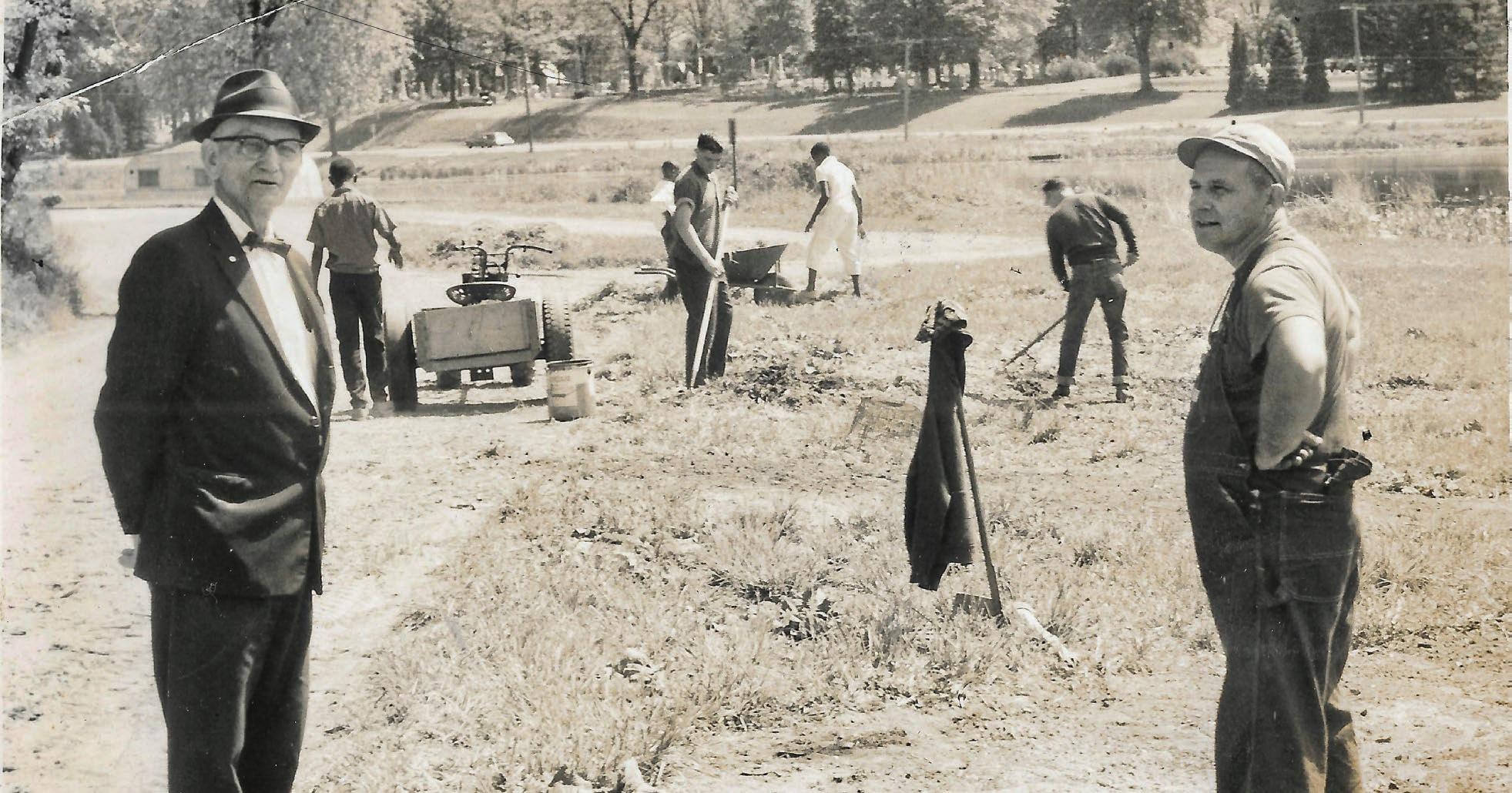
6 minute read
Brain health is interconnected
“Thoughtful for the future” is the Gleaner motto, and it becomes literal when it involves brain health — our ability to remain thoughtful as we age and face increased risk of dementia.
America is growing older than ever. Having fewer children and more senior citizens pushed the U.S. median age in 2023 to 39.2 years, up from 28.1 years in 1970. One concern with a higher percentage of older people is the likely increase in rates of conditions linked to aging. This includes dementia and other brain-health issues. Somewhat misleading headlines have proclaimed, “As the U.S. ages, dementia is on the rise.” The good news, however, is that simple demographics — more older Americans — is driving the rate increase. In fact, researchers are discovering more ways to avoid, delay, and in some cases even reverse brain-related health issues.
There are things we all can do to take better care of our brains!
— Robyn Smith Gleaner Life Medical Director
Dementia is the broad term given to many conditions marked by cognitive decline. Some of the more common include Alzheimer’s disease, which annually kills three times more people than breast and prostate cancer combined; vascular dementia, caused by reduced blood flow, often after a stroke; and Lewy body dementia, linked to abnormal deposits of protein in nerve cells.
Exams such as the Montreal Cognitive Assessment (MoCA) can identify problems early. Even regularly taking simple tests (such as remembering five random words for a brief period) may provide insight.
Just as most people 100 years ago thought cancer and heart disease were unpreventable, many still mistakenly see dementia as inevitable and hopeless. Decades of research is proving otherwise. Smith pointed to findings in a recent study from Brain Care Labs at Massachusetts General Hospital. It identified 17 protective or harmful factors that affect not only our risk of dementia but also stroke and late-life depression. “If you’re starting to work on one of them, very often you’re actually improving multiple at the same time,” said Dr. Sanjula Singh, a principal study investigator. “That’s a good way to start.”
Factors raising risk
Many factors can play a role in the onset of dementia:
• Two risk factors are age (dementia becomes more common after age 65) and family history (genetics can play a role, especially with early-onset Alzheimer’s). Neither factor, though, necessarily means a person will develop dementia.
• Health conditions — High blood pressure, high BMI (Body Mass Index), high total cholesterol, hearing loss, pain (especially pain that interferes with activity), poor sleep, depression, stress.
• Lifestyle conditions — Smoking, a diet high in red meat, sugar-sweetened beverages, sweets and salt, isolation leading to loneliness, lack of physical activity.
Factors improving protection
Researchers consistently find the changes that improve our general health may also help protect our brain health:
Moderate or high levels of physical activity — Numerous studies show exercise helps brain health by increasing blood flow to the brain, reducing inflammation and aiding the brain’s ability to adapt and grow (neuroplasticity). Examples include brisk walking, jogging or running, swimming, bicycling, dancing or playing tennis.
Reducing alcohol intake — Alcohol crosses the blood-brain barrier. Intoxication not only interferes with neural communication, it also causes brain shrinkage, nutritional deficiencies, and heavy use raises the risk of strokes. It is further linked to depression, blackouts and head injuries, all of which impair brain health.
Cognitive activity — Puzzles, memory exercises and other mentally stimulating tasks help build new neural connections to replace broken ones. Learning languages, listening to new music, taking different walking routes, and following up on our curiosity can protect cognitive health.
Protective diet — A diet high in vegetables, fruit, dairy, fish and nuts is beneficial. For example, antioxidants like anthocyanins protect from inflammation and can be found in blueberries, cherries, dark carrots, and red cabbage. Flavonoids are another antioxidant and can be found in fruit and vegetables including onions, green chili peppers, grapefruit and blackberries. Omega 3 fatty acids (wild salmon, sardines) also have shown positive results.
Regular sleep — Numerous studies connect poor sleep to cognitive impairment including higher risk of Alzheimer’s disease. Getting eight hours of sleep (but not more than nine hours) is considered important, so regular bedtimes and awakenings can help. Putting away video screens and turning off the lights also are important.
Social networks — Connecting with other people is vital, whether with families, church groups, book clubs, or cultural events. Gleaner arbors are one way to protect mental health while building our communities and fighting isolation (a risk factor in mental decline).
A sense of purpose in life — Identifying your purpose and having clear goals is tied to enjoying better cognitive health. Knowing we make a difference can help fend off aimlessness and depression.

“If you’re overwhelmed by where to start, lowering blood pressure and increasing physical and mental activity appear to have the greatest benefit, but all are helpful,” Smith advises. “As Dr. Singh suggested, choose one risk factor to address and then take it step by step.” This could be as basic as swapping water for sugary drinks, taking a daily walk, or beginning a new hobby.

Caregivers can’t do it alone
Another facet of dementia involves caregiving. Although the risks of dementia can be mitigated, there is no cure. People who care for others face many challenges while carrying out a rewarding responsibility. They may deal with physical and emotional exhaustion, a high financial burden, and often experience a lack of self-care. “This contributes to chronic health conditions and a notably higher mortality rate, even for healthy caregivers,” Smith noted. “While I am all for prevention, the impact of caring for someone who has Alzheimer’s/dementia is undeniably huge.” Some ways to help:
• Educate yourself about dementia to help prepare and manage care for yourself and your loved one. Some helpful groups include the Alzheimer’s Association, AARP (they have information and help online; you do not have to be a member), the V.A. has support services if your loved one is a veteran, and your local Council or Area on Aging. Your area may also have local volunteers, including through a church. Some support services may be available through medical insurance as well.
• Join a support group — whether online or in-person if able. If struggling as a caregiver, please seek and ask for help.
• Maintain regular updates with other loved ones. Dementia is often described as “the long goodbye,” but it can be a fulfilling journey for family and friends.
• It is important for caregivers to establish predictable schedules. Having a routine reduces confusion and anxiety for people with dementia.
• Utilize activities. These might include your loved one’s old photo albums, favorite music, or time in a garden.
Take a minute and think about your future. Identify why you want to remain mentally strong for others, and begin making those positive changes now. It isn’t easy, but you are not alone.










